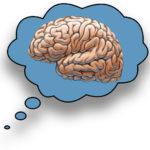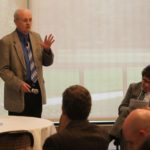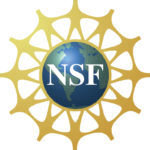‘How People Learn’
Thinking About Metacognition
Jan. 10, 2013—By Cynthia Brame, CFT Assistant Director I’ve been thinking a good bit about metacognition lately, which is kind of funny, if you think about it. Metacognition can be defined very simply as thinking about thinking, or more fully as by developmental psychologist John Flavell: “Metacognition refers to one’s knowledge concerning one’s own cognitive processes...
New Workshop Added: Why Students Behave the Way They Do
Sep. 22, 2011—Why Students Behave the Way They Do: A Teacher’s Guide to Cognitive Development “Why do we have to do group work? It’s such a waste of time! Just lecture and tell us what we need to know.” Are you curious why you hear this phrase in your classes? Why your students are reluctant to work...
Fostering Deep Learning – A Report from the CFT’s 25th Anniversary
Sep. 12, 2011—by Derek Bruff, CFT Acting Director Last week the CFT celebrated its 25th anniversary with two big campus events: a keynote talk by Ken Bain, founding director of the CFT and author of What the Best College Teachers Do, and a half-day symposium on the future of teaching at Vanderbilt. In this post, I’ll share...
Fractals, Metacognition, and the Affective Domain – A Conference Report
Feb. 7, 2011—by Derek Bruff, CFT Assistant Director Back in November I attended the 30th annual Lilly Conference on College Teaching at Miami University in Ohio. I thought I’d share some session highlights with my Vanderbilt colleagues. Here’s the fourth in a series of posts about the conference. A Fractal Thinker Ponders Bringing Faculty Development to Students:...
Call for Proposals – NSF Cyberlearning Grant – Due January 17, 2011
Oct. 1, 2010—The National Science Foundation is requesting proposals for its “Cyberlearning: Transforming Education” grants. From the call for proposals: Through the Cyberlearning: Transforming Education program, NSF seeks to integrate advances in technology with advances in what is known about how people learn to better understand how people learn with technology and how technology can be used...





